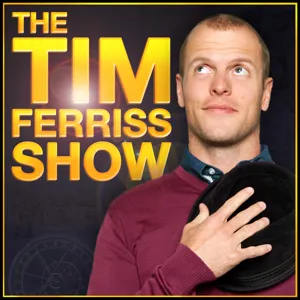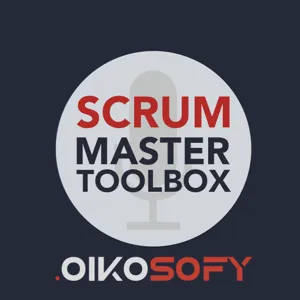Podcast Summary
The importance of having a co-founder: Starting a business with a co-founder increases productivity, enhances brainstorming, provides accountability, offers moral support, and significantly boosts chances of success.
Having a co-founder is essential for starting a successful company. A co-founder is someone who starts your business with you, and their presence brings numerous benefits such as increased productivity, better brainstorming, accountability, and moral support. The empirical evidence supports this as well, with most successful companies being founded by more than one person. At YC, out of the top hundred companies, only four were founded by solo founders. Therefore, while it's possible to start a company alone, having a co-founder significantly increases the chances of success.
Finding a Suitable Co-founder through Personal Network and Y Combinator's Co-founder Matching Platform: Explore your personal network, consider coworkers, and use Y Combinator's co-founder matching platform to find a suitable co-founder. Test the relationship through projects before committing.
Finding a suitable co-founder is a crucial decision for startups, and while you can find co-founders through your personal network, Y Combinator's co-founder matching platform is also an effective resource. YC believes that having a co-founder increases your chances of success, but they also fund solo founders. To find a co-founder, start by looking among your friends, classmates, and colleagues. If you're working at a company, consider your coworkers. Beyond that, look to your network and work on a project together to test the working relationship. YC's co-founder matching platform allows you to create a profile, and once approved, you can browse and message potential co-founders. They also offer speed dating sessions for quick video chats. Launched last year, the platform now has 40,000 profiles and has facilitated over 100,000 matches. Some early success stories include teams that have already shown promising signs.
Finding the Right Co-founder: Stories of Sequin and Kiwi Biosciences: Thoroughly filling out your profile and being open to the process on a co-founder matching platform can lead to successful collaborations. Instant connections and drawn-out processes can both result in fruitful partnerships.
Co-founder matching platforms can lead to successful and meaningful partnerships. The stories of Sequin and Kiwi Biosciences illustrate this. Sequin's Verinda and Mark, both with compatible backgrounds and shared values, met and connected instantly, leading to a successful YC application and $5.7 million in funding. On the other hand, Kiwi Biosciences' Angie and David had a more drawn-out process. David initially worked with another potential co-founder but was impressed by Angie's determination and eventually joined forces, filling out a detailed questionnaire and raising $1.5 million together. These examples show that while every co-founder match is unique, putting effort into your profile and being open to the process can lead to fruitful collaborations. Additionally, even if you don't initially connect with an idea or person, believing in their potential can lead to a successful partnership. To maximize your chances of success on a co-founder matching platform, make sure to fill out your profile thoroughly and be open to the process.
Selling Yourself to Potential Co-Founders: Have open, honest conversations early on about goals, values, communication, finances, and commitment to ensure compatibility and a successful co-founder relationship.
When trying to find a co-founder, it's essential to sell yourself and highlight your accomplishments to stand out from the crowd. This is especially important for non-technical founders trying to recruit technical co-founders. Meet potential co-founders as soon as possible, ideally in person, and have open and honest conversations about goals, values, communication, finances, and commitment early on. These conversations will help ensure compatibility and a successful co-founder relationship, which can be as important as a marriage, as you may spend a significant amount of time with them. Remember, communication is key, and it's important to be able to have frank conversations and still move forward productively.
Assessing Co-founder Compatibility: Compatibility and shared vision are key in co-founder selection, while specific skills can be learned. Test compatibility through trial projects and ensure equal equity sharing for equal contributions.
When evaluating potential co-founders, compatibility and shared vision are more important than specific skill sets that can be learned. While it's tempting to seek out someone to handle fundraising or technical aspects, most skills are learnable. However, having a technical co-founder is an exception if you're non-technical. To test the compatibility with a potential co-founder, trial projects are recommended before committing to a full partnership. Equity splitting is another crucial aspect, and by default, equal sharing is advised to ensure equal contributions and motivation. Remember, taking a leap of faith with a co-founder is necessary, but de-risking the relationship through trial projects and other methods is also important. Ultimately, finding someone you're willing to take that leap with is essential for a successful startup partnership.
Focus on building a strong co-founder relationship: Clear communication and setting expectations early on are crucial for a successful co-founder relationship, rather than focusing on old claims or past work.
Ideas are cheap and the initial idea may change over time. Equity distribution in a startup should not be based on old claims like "I came up with the idea first" or "I did more work before you joined." Instead, focus on creating a strong, communicative co-founder relationship that can last for years. Communication is key, and setting clear expectations early on can prevent potential issues down the line. A co-founder relationship is similar to a marriage, and open and clear communication channels should be established from the start. Don't let small differences in equity distribution jeopardize your co-founder relationship, as the real work and challenges are still ahead.
Communication and trust are essential for a co-founder relationship: Discuss expectations early on to build trust and prevent misunderstandings, including finances, work hours, and response times.
Open and honest communication about expectations and building trust are crucial elements for a successful co-founder relationship. Finances and the length of time each founder can afford to go without salary were topics that should have been discussed earlier in the process to avoid unexpected pressures and potential distractions. Trust, whether it comes from a pre-existing relationship or is built over time, can significantly impact the functionality and effectiveness of a co-founder relationship. Founders should discuss various expectations, such as work hours, response times, and milestones, to ensure alignment and prevent misunderstandings. Misalignments on these expectations can lead to resentment and hinder the growth of the startup. Communication and trust are the foundations for a strong co-founder relationship, and having these conversations early on can set the stage for a successful partnership.
Trust is essential for co-founder success: Founders should communicate openly, trust by default, create space for mistakes, and define clear roles to build trust and avoid negative consequences.
Building trust between co-founders is crucial for a successful startup. Micromanaging and lack of trust can lead to negative consequences, such as resentment and the loss of a co-founder. To build trust, founders should trust people by default, communicate openly and honestly, create space for mistakes, and spend time together physically. Avoid assigning blame when things go wrong and focus on learning from mistakes together. Additionally, defining clear roles and responsibilities can help expedite decision-making and build trust. As seen in the example given, not defining clear roles and responsibilities can lead to confusion and ultimately, the loss of a co-founder.
Establishing clear roles and decision-making structures: Clearly defined titles, areas of ownership, and a process for accountability can prevent gridlock and improve effective decision-making within a team.
Having a clear decision-making structure and established roles within a team is crucial for avoiding gridlock and making effective decisions. Consensus decision-making and a lack of defined roles can hinder progress and indicate an inability to handle disagreements. Establishing clear titles, areas of ownership, and a process for accountability can help prevent these issues. Additionally, understanding each team member's communication styles and personality traits can improve collaboration and reduce conflict. Keep an eye on each other's mental health and reactions during stressful situations to address potential issues early on.
Understanding Co-Founder Styles for Productive Relationships: Identify communication styles, build feedback culture, and address hard conversations to foster a productive co-founder relationship.
Effective communication and understanding of each other's working styles and preferences are crucial for a productive co-founder relationship. Mismatches in communication styles can create a vicious cycle and lead to misunderstandings or frustration. It's essential to identify how your co-founder reacts to stress, their communication style, and their preferred environment for voicing concerns. Building a strong co-founder relationship also involves being comfortable with giving and receiving positive feedback, and not taking constructive criticism personally. Regularly scheduled one-on-ones, reserving time for bi-directional feedback, and avoiding personal statements are effective habits for fostering a productive co-founder relationship. Don't delay addressing hard conversations, as problems are easier to solve when they're small. Engaging a coach or counselor for interpersonal situations can be helpful and normalize failure to create a healthy and supportive co-founder dynamic.
Disagree and commit: moving forward despite disagreements: Effective teams commit to decisions even when disagreeing, focusing on the shared goal for progress and success.
Even when teams disagree on decisions, it's crucial to commit and move forward once a choice has been made. This principle, known as "disagree and commit," is essential for maintaining progress and keeping the ultimate goal in mind. Ultimately, both team members want the same thing: the success of the startup. By focusing on this shared objective and working together, teams can navigate disagreements and overcome challenges more effectively. This principle is particularly important in the context of starting a business, which involves significant risk and uncertainty. In summary, disagree and commit is a powerful tool for fostering collaboration, productivity, and progress in any team.





